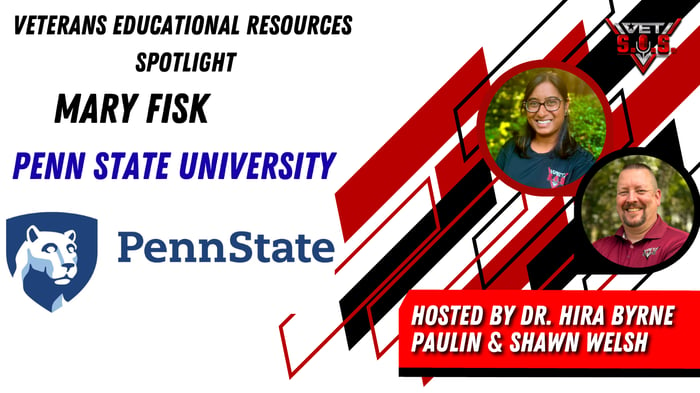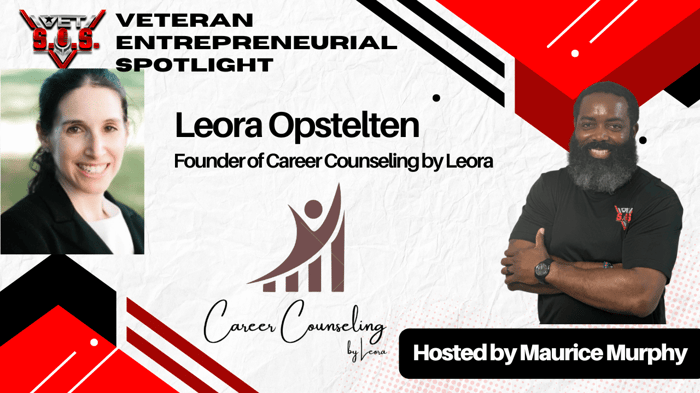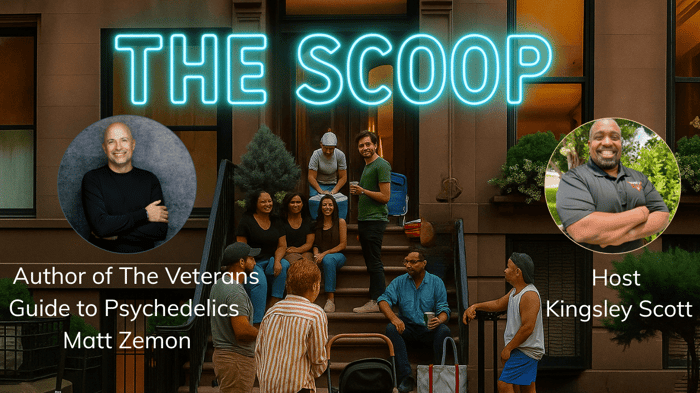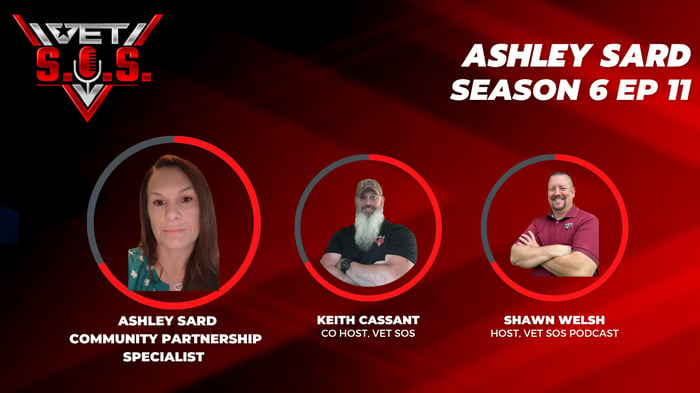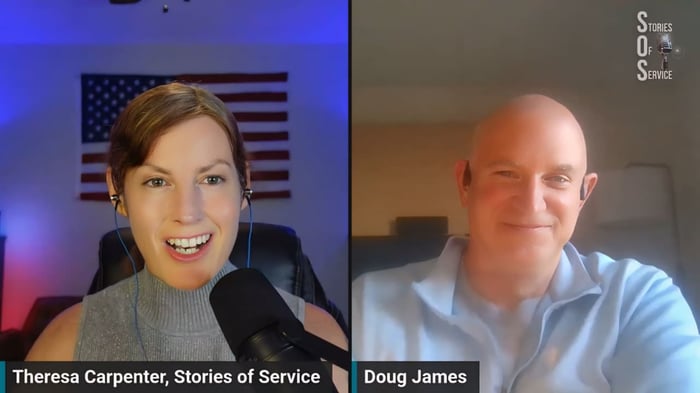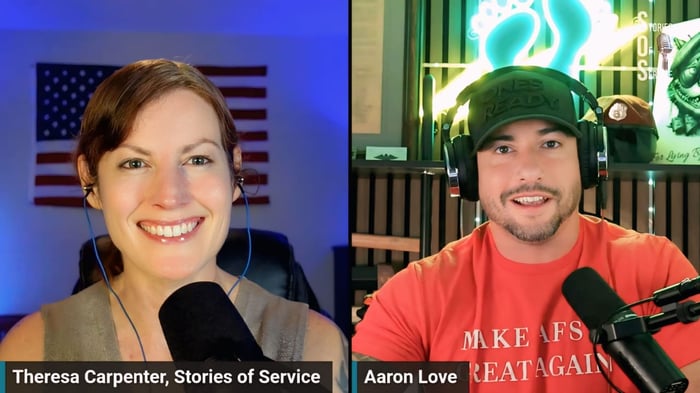Transitioning from the military to civilian life is a journey filled with uncertainty, opportunity, and the need for community. For many student veterans, finding the right environment and support system is critical to achieving academic and career success. At Penn State University, Mary Fisk — the Student Veteran Career Counselor — embodies the commitment to delivering comprehensive veteran career support that makes a lasting difference.
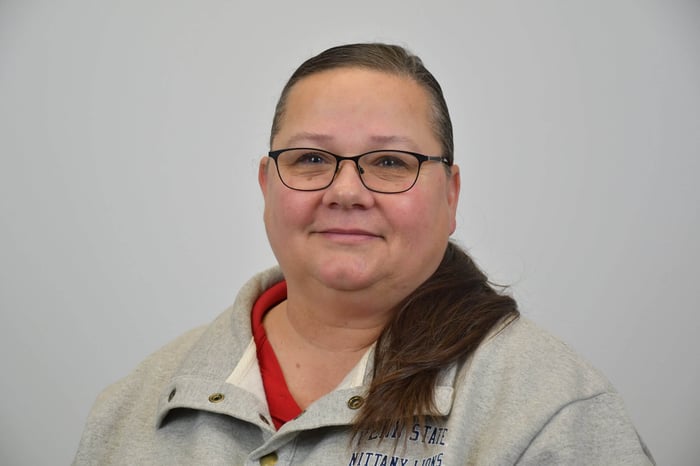
A Marine Corps veteran herself, Mary brings authenticity, lived experience, and deep empathy to her work. After retiring from the military, her journey took her from the front lines to Starbucks, where she immersed herself in diverse civilian environments as part of her personal reintegration strategy. This bold move gave her firsthand experience navigating the challenges many veterans face: rebuilding identity, developing civilian workplace skills, and finding community outside the uniform.
Eventually, she returned home to northeastern Pennsylvania, where feelings of restlessness reminded her of a common transitional challenge among veterans: difficulty staying rooted. It wasn’t until she found her home in State College, Pennsylvania, that she experienced what many student veterans long for—stability, purpose, and belonging.
That sense of belonging eventually led her to Penn State, where she began her educational journey as a student veteran. Thanks to a National Guard member staffing the Veterans Office front desk, Mary was invited to apply for a VA work-study position. That moment set the trajectory for her career in veteran career support. She worked in outreach and became a critical touchpoint for incoming student veterans, helping them navigate admissions, integration, and services. A retired Marine Lt. Colonel mentor saw her potential and encouraged her to apply for a full-time position supporting veterans. The rest, as they say, is history.

Today, Mary serves as the Student Veteran Career Counselor in Penn State’s Office of Veterans Affairs and Services. Her goal is clear: prepare every student veteran for post-graduation success through proactive, strategic, and inclusive veteran career support.
Her role goes far beyond just helping students polish resumes. She teaches students that career development is a process, not a one-time event. It involves:
Building and refining résumés and cover letters
Practicing interview skills
Creating elevator pitches
Networking both in person and online
Negotiating salaries and job offers
Identifying internship and experiential learning opportunities
By viewing career exploration as an ongoing course, she empowers student veterans to treat professional growth with the same seriousness as academic success. Mary’s ideal outcome? Students securing jobs before their final semester begins, allowing them to focus on the final chapter of their academic journey without the stress of job hunting.
Penn State’s approach is also designed to include the diverse geographic footprint of its military-connected students. While University Park is the flagship campus, the university serves veterans at 24 Commonwealth campuses and through its World Campus online platform. Mary ensures that her workshops, lunch and learns, and employer panels are available in hybrid formats—whether you're in central Pennsylvania or deployed overseas.
Some of the key initiatives include:
One-on-one career counseling appointments
Regular lunch & learns featuring employers who are veteran-friendly
Workshops throughout each semester on cover letters, résumés, networking, and interviews
A dedicated Student Veteran Career Fair (being reinstated this fall)
A Veteran Career Toolkit in Canvas, developed in collaboration with World Campus
A “Career Passport” to track student engagement and learning
One of the standout aspects of Penn State’s veteran career support is its emphasis on experiential learning. Mary encourages veterans to engage in internships and practicum experiences—not just in their senior year, but as early as possible. For transfer students, who often have only two or three years on campus, the clock starts ticking fast. Leveraging summer or even winter breaks for internships gives student veterans a competitive edge—and helps them discover what they do or don’t want to do before graduation.
Additionally, Mary partners with the Bank of America Career Services team, which has provided extensive support for career fair planning and outreach. She’s also mindful of logistics like transportation and lodging to ensure equitable access for student veterans from all campuses.
Communication is a huge part of her strategy. Mary sends out weekly email blasts featuring job opportunities, internship listings, and event announcements. With a military-connected student population nearing 3,000, these emails offer consistent touchpoints for engagement, awareness, and opportunity.
While her current capacity is focused on veterans themselves—active duty, reserve, and National Guard—Mary acknowledges the large population of military spouses and dependents. She hopes to expand the scope of her services in the future as the office grows and additional resources become available.
One of her most important messages to student veterans is simple: Don’t be afraid to ask for help.
Mary knows that many service members struggle to raise their hand or admit they need veteran career support. But the reality is, many small obstacles can be quickly resolved with the right information, a second pair of eyes on a résumé, or a single conversation. In her words, “Get over yourself. You’re hobbling yourself if you don’t ask.”
She believes that every university has resources available—many veterans just don’t know they exist or where to find them. Her advice: Educate yourself on what’s available and take full advantage of it.
Mary’s passion for Penn State runs deep. After serving as the student veteran program director at Cornell, she returned to Penn State because it simply felt like home. It was the first place where her own transition began to feel stable. The camaraderie, mutual respect, and humor shared among her colleagues has reaffirmed that this is where she’s meant to serve.
And for the student veterans she supports—Mary’s work doesn’t just prepare them for jobs. It prepares them for life after service, helps them discover new paths, and builds a community where they feel seen, supported, and empowered.
Whether you're a student veteran already at Penn State or someone considering it as your next step, Mary Fisk and the Office of Veterans Affairs and Services are proof that the right people—and the right systems—can make all the difference in your veteran career support journey.
